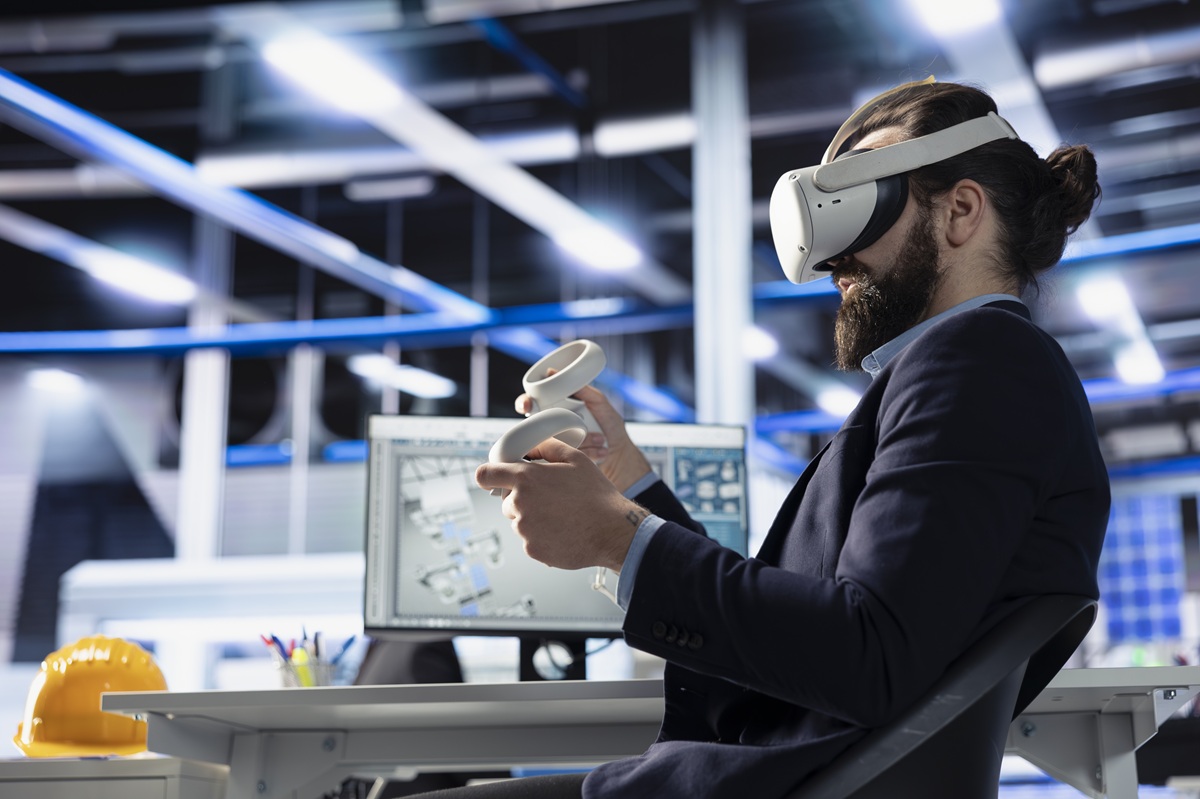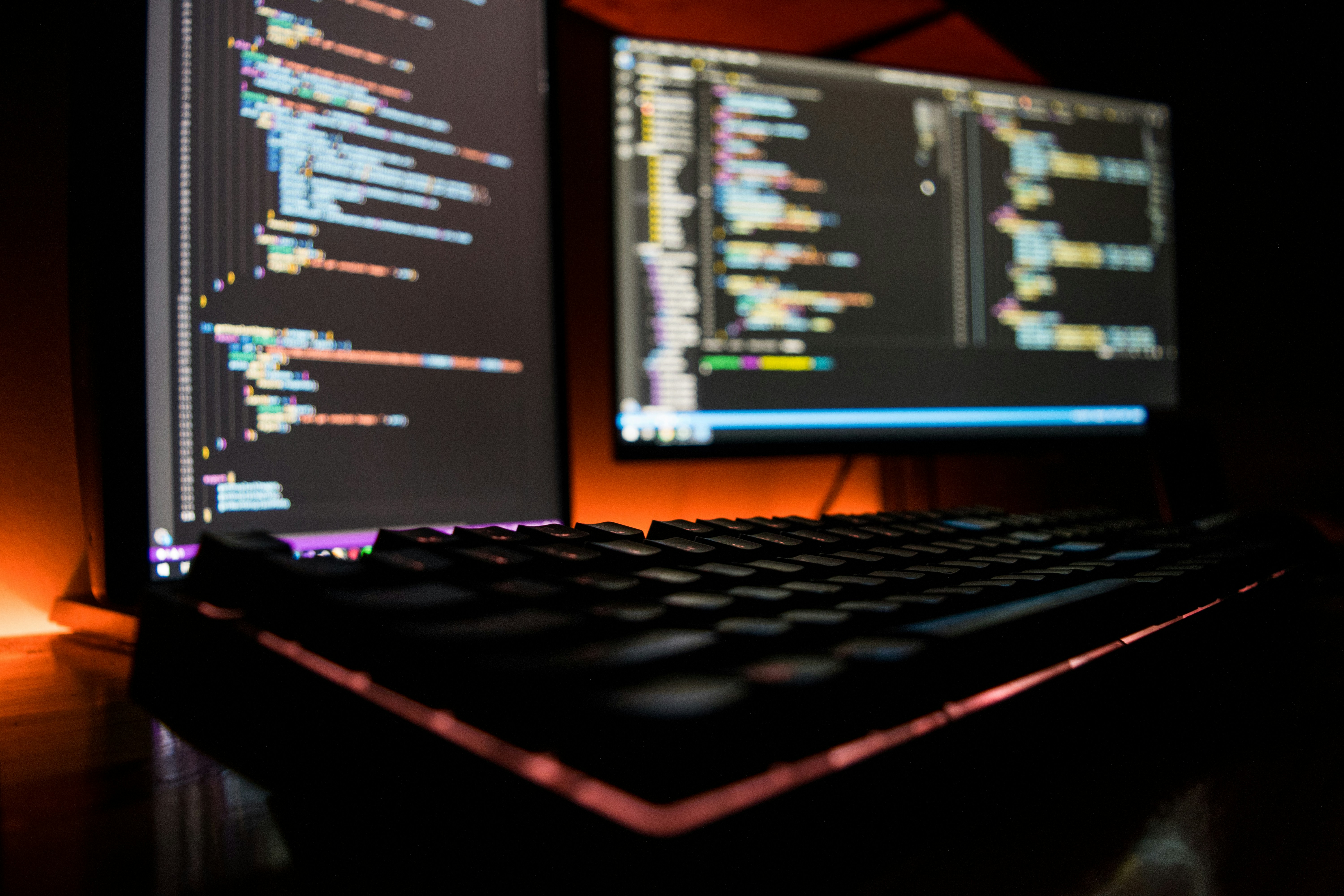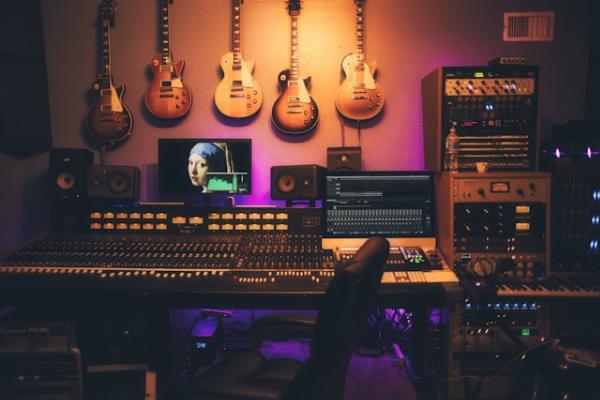Revolutionizing Education with Virtual Reality: The Future of Learning with iXRlabs

Strong 8k brings an ultra-HD IPTV experience to your living room and your pocket.
In recent years, technology has begun to reshape the landscape of education, with virtual reality (VR) emerging as one of the most transformative tools. By immersing students in dynamic, interactive environments, VR offers new ways to engage with learning material and develop practical skills.
At iXRlabs, we believe that VR for education is not just a passing trend but a necessary evolution in how we approach teaching and learning. This article explores the benefits of virtual reality in education, how it’s transforming classrooms globally, and why VR education is a critical component of the future of learning.
What is Virtual Reality in Education?
Virtual Reality in education refers to the use of immersive, computer-generated simulations that allow students to experience a variety of scenarios in a safe and controlled environment. Through specialized VR headsets and controllers, learners can interact with three-dimensional environments that simulate real-world processes, situations, or theoretical concepts.
The applications of VR in education are diverse, ranging from virtual field trips to scientific simulations, and engineering labs to medical procedures. Virtual Reality enables educators to bring abstract or complex concepts to life by allowing students to interact with them in a way that textbooks or traditional methods simply cannot match.
The Growing Importance of VR in Education
The concept of using VR in education is not new, but in recent years, with the advent of more affordable VR technologies and content creation tools, the adoption of VR in the education sector has surged. Institutions are beginning to realize the vast potential that VR offers—not just in enhancing engagement but also in improving learning outcomes and fostering a deeper understanding of material.
As students face a rapidly evolving world that demands both theoretical knowledge and practical skills, VR provides an innovative way to bridge the gap between classroom instruction and real-world application. At iXRlabs, we specialize in developing VR modules designed specifically for higher education institutions, including engineering, medical, and science programs.
Benefits of Virtual Reality in Education
1. Enhanced Engagement and Motivation
One of the most immediate benefits of VR education is the increase in student engagement. Unlike traditional classroom settings where attention can wane, VR places students directly into the content they are learning, making it more engaging and memorable. Whether it's exploring the human circulatory system in 3D or walking through historical landmarks, students are more likely to remain focused and excited about their learning experiences.
A study by PwC found that employees who engaged with VR training programs were four times more focused than their peers who underwent traditional methods. This same level of focus can be translated into educational settings, encouraging students to take an active role in their learning.
2. Real-World Simulations and Skill Development
Another compelling reason to integrate VR into education is its ability to simulate real-world scenarios. For instance, medical students can perform virtual surgeries to practice skills without any risk to patients, while engineering students can test the functionality of complex machines in virtual labs.
By engaging in these simulations, students gain invaluable hands-on experience in a risk-free environment. In fields such as aviation, chemistry, and mechanical engineering, students can interact with machines, tools, and environments that would be difficult or dangerous to replicate in the real world.
3. Cost and Time Efficiency
While the initial investment in VR technology may seem high, the long-term benefits far outweigh the costs. Traditional training methods often require costly physical equipment or lab setups, not to mention the time required to set up and run these activities. With VR, these resources can be replicated digitally, allowing for an infinite number of simulations without the ongoing costs.
Additionally, VR can reduce the time needed to train students. In fields such as medical education, where repetition and practice are key to mastery, VR allows for continuous, hands-on practice without requiring additional time or resources from instructors or patients.
4. Personalized Learning Experiences
Every student learns at a different pace, and traditional education systems often struggle to accommodate these individual differences. VR allows for more personalized learning experiences by adjusting the content and pace to the needs of each student. Through immersive VR modules, students can explore concepts on their own terms, revisit difficult topics, or explore subjects that might otherwise be outside the scope of the curriculum.
At iXRlabs, we use cutting-edge AI-powered VR systems that adapt in real-time, ensuring that each student has access to a learning environment that caters to their unique learning style and pace.
5. Increased Retention and Understanding
One of the most significant advantages of VR in education is the potential for improved knowledge retention. Studies have shown that immersive learning experiences can enhance memory retention by providing students with a more interactive and engaging way of learning. Instead of passively reading from a textbook or listening to lectures, students actively engage with the material, which leads to better comprehension and retention.
According to a study by the University of Maryland, students who participated in VR-based learning experiences retained information four times better than those who used traditional teaching methods.
6. Breaking Down Geographical Barriers
In traditional education systems, students are often limited by geography when it comes to accessing certain learning experiences. VR overcomes these barriers by offering virtual field trips, global classroom connections, and remote access to educational content. Students can now visit distant museums, tour ancient cities, or attend virtual lectures from professors across the globe—all from the comfort of their own classroom or home.
For institutions, this opens up the possibility of providing high-quality educational experiences to students in remote or underserved areas.
How iXRlabs is Leading the Way in VR for Higher Education
At iXRlabs, we are committed to providing educational institutions with the most advanced VR tools to enhance learning experiences. Our VR solutions are tailored to specific academic fields, including engineering, medical, and science education.
Through our customized VR modules, students can engage with their coursework in a whole new way. For example, engineering students can interact with virtual machines to understand complex systems better, while medical students can practice procedures and hone their skills in a controlled virtual environment. Our immersive VR experiences give students the opportunity to experience the material in ways that traditional teaching methods cannot.
Moreover, our solutions are designed to be scalable and adaptable. Whether you are a small university or a large institution, our VR modules can be seamlessly integrated into your existing curriculum, enhancing the learning experience for students and instructors alike.
The Future of VR in Education
The future of virtual reality in education is incredibly bright. As VR technology continues to evolve, we can expect even more advanced, realistic, and immersive learning experiences. From AI-powered VR modules that adapt to individual learning styles to fully interactive holographic classrooms, the possibilities for enhancing education through VR are limitless.
As we move forward, VR will continue to play an increasingly critical role in education, helping students gain practical skills, engage with material on a deeper level, and prepare for the demands of the 21st-century workforce.
Conclusion
Virtual Reality for education is not just a passing trend but an educational revolution. The benefits of virtual reality in education are clear—improving engagement, providing real-world simulations, offering personalized learning experiences, and increasing retention. VR has the potential to redefine how students learn, providing them with skills and knowledge that will serve them throughout their lives and careers.
At iXRlabs, we are proud to be at the forefront of this transformation, offering cutting-edge VR solutions that empower educators and inspire students. As the world continues to embrace new technologies, we believe that VR will be essential in shaping the future of education, one immersive experience at a time.
For more information about how iXRlabs can revolutionize your educational programs with VR education, contact us today. Let's work together to bring your learning environment into the future!
Note: IndiBlogHub features both user-submitted and editorial content. We do not verify third-party contributions. Read our Disclaimer and Privacy Policyfor details.







